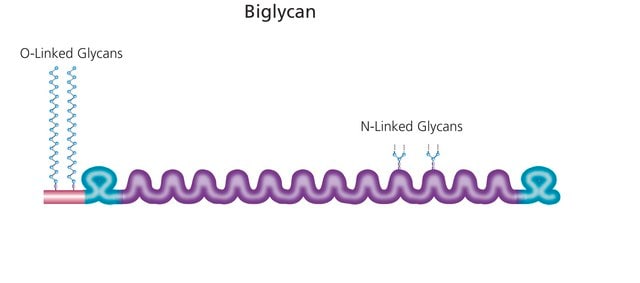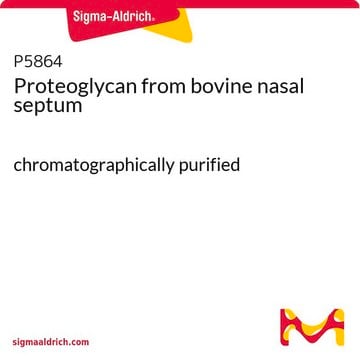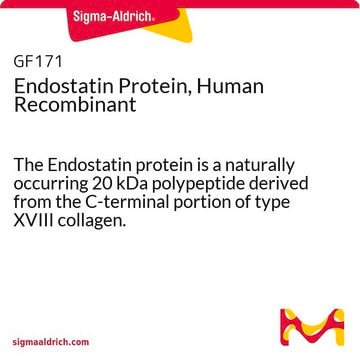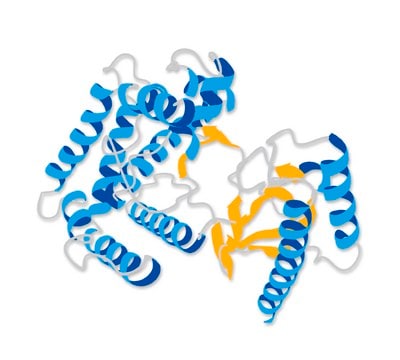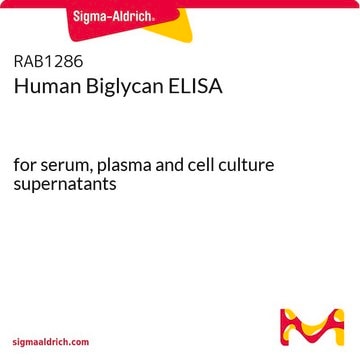A1960
Aggrecan from bovine articular cartilage
lyophilized powder
Sinônimo(s):
Aggrecan Protein
Selecione um tamanho
Selecione um tamanho
About This Item
Produtos recomendados
fonte biológica
bovine articular cartilage
Nível de qualidade
Formulário
lyophilized powder
embalagem
glass bottle of 1 mg
técnica(s)
cell culture | mammalian: suitable
Impurezas
salt, essentially free
cor
white
solubilidade
H2O: 2 mg/mL
nº de adesão UniProt
Condições de expedição
wet ice
temperatura de armazenamento
−20°C
Informações sobre genes
cow ... AGC1(280985)
Aplicação
Ações bioquímicas/fisiológicas
Componentes
Atenção
Nota de preparo
Código de classe de armazenamento
11 - Combustible Solids
Classe de risco de água (WGK)
WGK 3
Ponto de fulgor (°F)
Not applicable
Ponto de fulgor (°C)
Not applicable
Equipamento de proteção individual
Eyeshields, Gloves, type N95 (US)
Escolha uma das versões mais recentes:
Certificados de análise (COA)
Não está vendo a versão correta?
Se precisar de uma versão específica, você pode procurar um certificado específico pelo número do lote ou da remessa.
Já possui este produto?
Encontre a documentação dos produtos que você adquiriu recentemente na biblioteca de documentos.
Os clientes também visualizaram
Artigos
Uncover more about glycosaminoglycans and proteoglycans including the structure of glycosaminoglycans (GAGs), the different types of GAGs, and their functions.
Glycosaminoglycans are large linear polysaccharides constructed of repeating disaccharide units.
Active Filters
Nossa equipe de cientistas tem experiência em todas as áreas de pesquisa, incluindo Life Sciences, ciência de materiais, síntese química, cromatografia, química analítica e muitas outras.
Entre em contato com a assistência técnica
